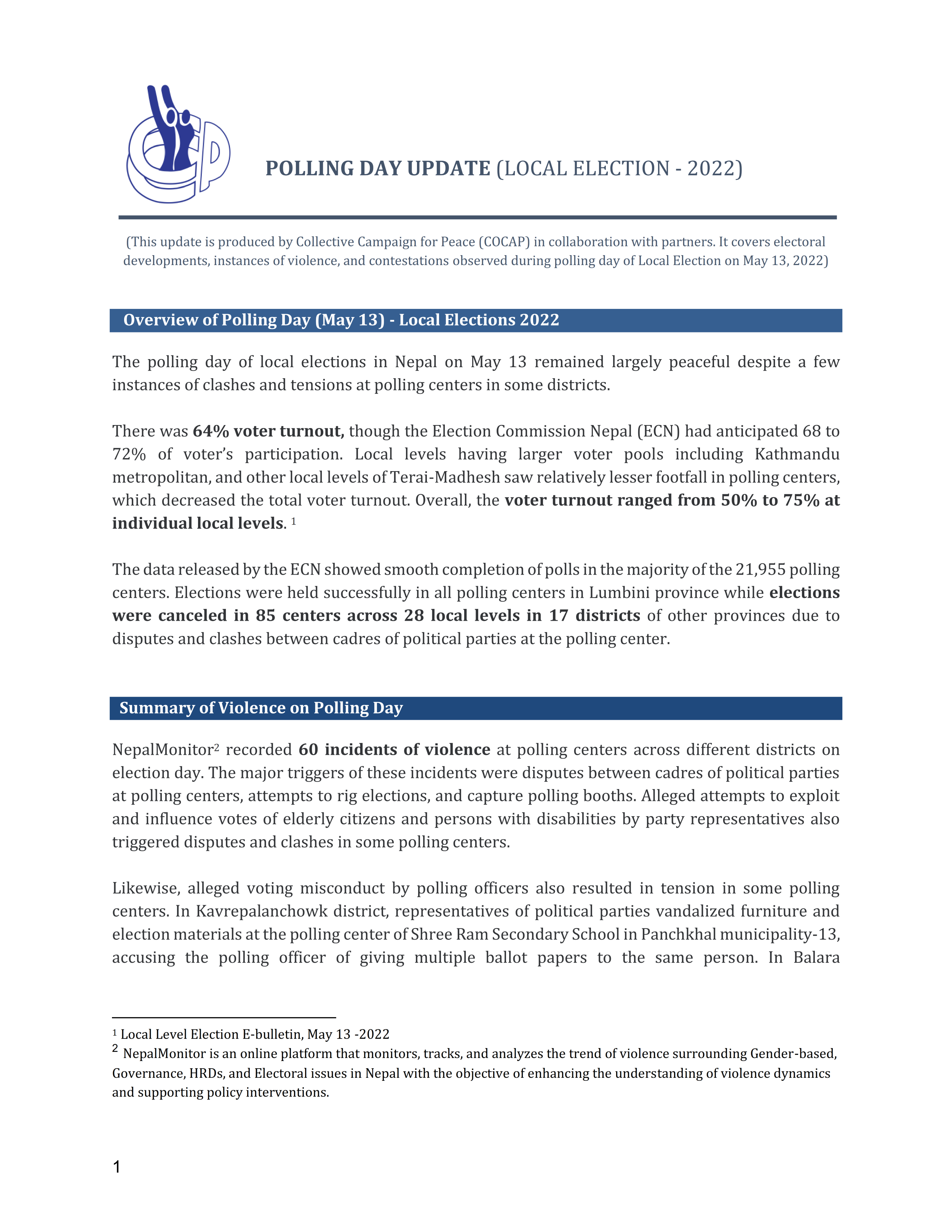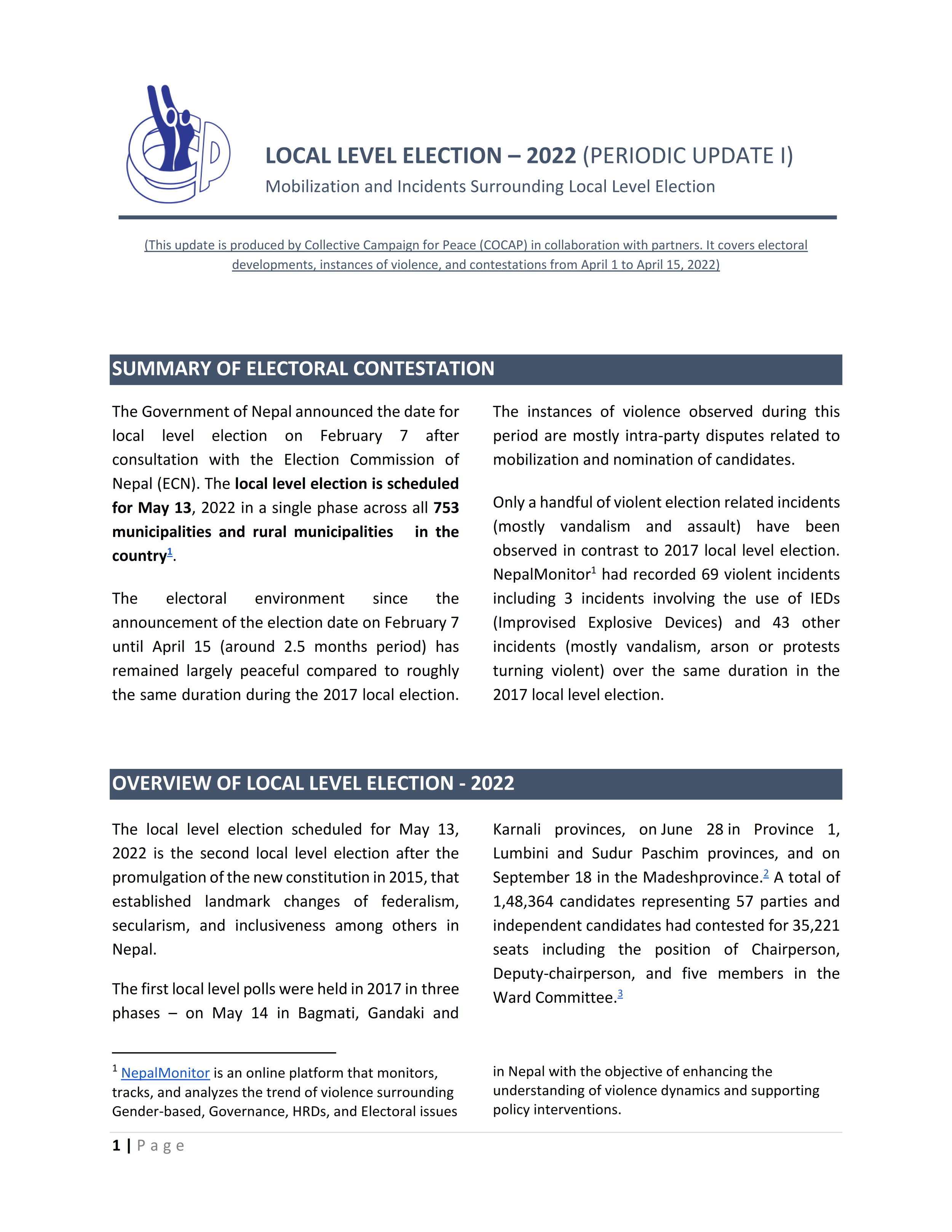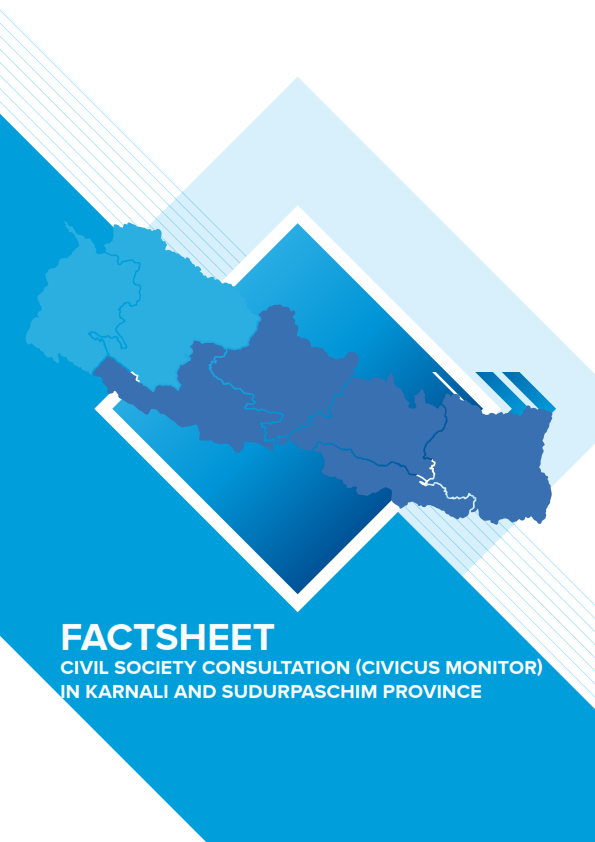Incident Reports
Food crisis hits remote Bajhang villages
2016-02-29
Sudurpashchim, Bajhang, Saipal
Over two dozen villages in Bajang district has been facing a food crisis. As crops production here suffered from scanty rain during monsoon and winter, the food crisis has hit locals of Dhuli, Balaudi, Kaya, Dhalaun, Kanda, Naura, Bichhada, Chuhawan, Saingaun and Daila villages among other places. Amid this natural crisis, the government-owned Food Corporation, which is supposed to provide food grains at a lower cost than the market, has been selling rice at higher prices than those offered by traders in the market. "Generally our produce from the farms would suffice for at least three months. This year our stock finished much earlier as the production was not good. Now we have to purchase it from the market," said Kalak Bohora, 53 of Kanda village. "This year the production has been hit by low rainfall during monsoon and in winter. The food crisis has hit many like us," he added. Bohora informed many households, like his, don't have money to buy food grains from the market and the rice that comes in quota, which is distributed by NFC, is costlier than that available in the local market. "Price of per kg of rice sold by NFC is costlier by three rupees than the market price. While we get one kg of rice at Rs 34 in the market, the corporation sells the same quality of rice at Rs 37," he said expressing bewilderment at the high price put up by NFC.
Adding to their woes, these villagers have to make a tiring two-day journey to Talkot, the nearest market to them, for purchasing rice. Similarly, some others have to go even farther than that to district headquarters, Chainpur, to buy food grains. And despite making such arduous trek, as part of quote system NFC rations just five kg of rice to an individual. "For the past six months, we have been surviving on meagre food supply. Mostly sustaining on wild roots and fruits in our fields and forest," said Dalbire Rokaya of Dhuli village, who was spotted at the headquarters Chainpur on Saturday. Sharing his story, Rokaya said that he walked for five days for purchasing rice. He said that his family had to sell some of their lands for Rs 5000 for buying food for the family. Rokaya had first walked two days to Talkot market for purchasing rice. Unfortunately, as the local traders did not have any rice to sell, he was forced to make an arduous three-day journey to Chainpur. This extended journey has exhausted his ration budget.
A significant amount of the money that he was able to collect by selling off the land has been reduced by more than half. "I have spent over Rs 3000 in lodging and food throughout the journey. And I don't know how long the rice worth just Rs 2000 will feed my family? Kali Damai of Masta village lamented that food grains are not for sell in villages. While there's no market nearby, it takes two days to arrive at the headquarters. "It is so tough for us. Even if we walk for the market, we are never sure if we would get what we want. Sometimes it's only a waste of time and money. Sometimes we get rotten rice though we spend a lot for staying at the headquarters," he said. This time also Damai paid Rs 35 per kg of rice which was stinking, he said. Damai added that life has been very tough for poor people and urged the government to provide food grains in relief. "We are going to die without food. On the other hand, the government is raising the price of rice. The government needs to give us food in relief," he said. Former District Development Committee member Hemraj Joshi informed that the Talkot NFC depot was transferred to Chainpur during the conflict. That has not yet been relocated. "We have requested NFC and the administration for reestablishing the food depot but so far they have not taken any action in that regard," he said adding that such an act has added to the woes of the locals.
He expressed dismay over NFC's higher prices for food grains when the villagers are hit by the food crisis. "Most of the villagers of those areas do not have access to road transportation. They walk for more than two or three days for buying a small amount of rice. The condition is so pathetic but still, NFC has been selling food grains at higher prices than the market," Joshi said questioning the government's attitude towards the starving population in drought-hit areas of the district.
Meanwhile, Ishwori Dutta Pandey, acting chief of Food Corporation Office in Chainpur informed that letter has been sent to the concerned bodies for lowering prices of the food grains. "Government rate is surpassing the market rate. It's not fair. We have asked the concerned bodies to look into the matter," he said. He further said that rice at the government depot is better than that in the market. However, due to the higher price, people are switching to market. The food crisis is not a new thing for Bajhang. Supply is always less than the demand. As per data of the District Agriculture Officer, 39237 metric ton of food grain is needed in Bajhang annually.
Related Reports
Governance / Kathmandu
Medical education concern committee protest by banging plates and whistling
Governance / Darchula
Workers padlock school citing non-receipt of wages for more than a year
Governance / Sunsari
Prohibitory order issued in Dharan, tightening at entry points
Governance / Morang
Students of Eastern College in Biratnagar on protest
Related Trend Analysis
Analysis

THE NEPAL PEACE MONITOR ANNUAL REVIEW: 2020
October 25, 2021
Human Trafficking / LGBT+ Rights / GBV / Political / Children’s Rights / Senior Citizens’ Rights / HRD Issues / Human Rights / Interpersonal Violence / Governance / Covid-19 / Civic-Space / PwD

_001.png)




